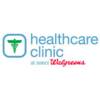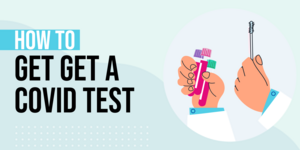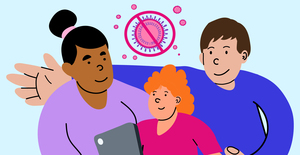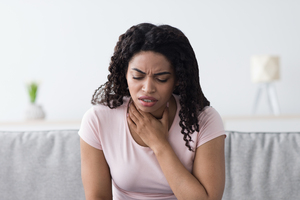Shingles Vaccine Near Me
Own a clinic? Add your location.
Help patients book appointments with you on Solv. It's free!
0 instant-book locations
Med Save Urgent Care
Med Save Urgent Care
MedSave Clinic
MedSave Clinic
Walk In Urgent Care, Columbus - N. High Street
Walk In Urgent Care
Walk In Urgent Care, Columbus North
Walk In Urgent Care
Copc Cardiac Testing
Copc Cardiac Testing
Polaris Urgent Care, Polaris Parkway
Polaris Urgent Care

WellNow Urgent Care, Columbus
WellNow Urgent Care

United Urgent Care
United Urgent Care
Close to Home Center
Close to Home Center
Close To Home Center
Close To Home Center
OhioHealth Primary Care Physicians
OhioHealth Primary Care Physicians
FastCare inside Giant Eagle
FastCare inside Giant Eagle
Maplewood Medical Center
Maplewood Medical Center
Close To Home Center
Close To Home Center
Advanced Immediate Care, Martha Morehouse Medical Plaza
Advanced Immediate Care

The Little Clinic at Kroger
The Little Clinic at Kroger
OhioHealth Urgent Care, Hilliard
OhioHealth Urgent Care
Close To Home Center
Close To Home Center
Own a clinic? Add your location.
Help patients book appointments with you on Solv. It's free!
About Shingles Vaccine
The shingles vaccine can reduce your risk of getting shingles and developing related complications such as long-term nerve pain. Knowing more about this vaccine and what it can do can help you make informed health decisions for yourself and your family members.
About the shingles
Shingles is a painful, blistering skin rash caused by the varicella-zoster virus. According to the National Library of Medicine (NLM), the varicella-zoster virus is the same virus that causes chickenpox.
Chickenpox remains inactive in your body after you’ve had it. You can get shingles if the chickenpox virus becomes active again, which usually occurs many years later, reports the NLM.
According to the NLM, the people at highest risk for developing shingles are those aged 60 years and older and who had chickenpox before the age of 12 months. You may also be at high risk for shingles if your immune system has been weakened by disease or medications.
Shingles Symptoms
The NLM reports that the primary symptom of shingles is a painful skin rash that usually develops on the spine and wraps around toward the front of the chest or abdomen. Some people may develop rashes on their faces around the eyes, mouth, and ears, adds the NLM.
According to the NLM, pain, tingling, and burning on one side of the body are symptoms that usually occur before any rashes appear. These sensations are followed by red patches on the skin and small blisters, which then break to form small, dry, crusty sores. Sores from shingles fall off within two to three weeks and do not usually cause scarring.
Other symptoms of shingles, according to the NLM, include:
- Fever and chills
- Headache
- Malaise
- Joint pain
- Muscle weakness
- Swollen lymph nodes
- Drooping eyelid
- Hearing loss
- Vision problems
- Taste problems
How to contract shingles
Shingles occur when the varicella-zoster virus reactivates in your body after you’ve had chickenpox. According to the CDC, you cannot contract shingles from someone else who has it. However, you can get chickenpox from someone who has shingles, which can increase your risk of getting shingles later on.
The NLM reports that no one knows why the varicella-zoster virus suddenly becomes active again years later. It adds that in some cases, many people who had mild cases of chickenpox are unaware they ever contracted the virus in the first place.
What vaccines can help prevent shingles?
Shingles may be prevented by getting two doses of the shingles vaccine called Shingrix. The Shingrix vaccine can also reduce your risk of complications from shingles, reports the CDC. It adds that this shingles shot is given in the upper arm and is more than 90% effective at preventing shingles in adults aged 50 years and older who have healthy immune systems.
Should I get the shingles vaccine?
The CDC recommends the shingles vaccine for adults aged 50 years and older and for adults aged 19 years and older who have weakened immune systems due to disease or medication therapy. It also recommends the shingles vaccine for those who have already had shingles and/or the chickenpox vaccine as well as those who have received another shingles vaccine called Zostavax that is no longer available in the United States.
What are the side effects?
The shingles vaccine may cause temporary side effects that affect your ability to perform normal daily activities for two to three days, reports the CDC.
Possible shingles vaccine side effects include:
- Sore arm with mild to moderate pain
- Redness and swelling at the injection site
- Tiredness
- Muscle pain
- Headache
- Fever and chills
- Stomach pain
- Nausea
The CDC adds that side effects are more common in younger people and that you might experience a reaction to the shingles shot after both doses. It recommends taking over-the-counter pain medicine such as ibuprofen or acetaminophen if you experience side effects from the shingles vaccine.
The CDC notes that another potential side effect of the shingles vaccine is Guillain-Barré syndrome (GBS). GBS is a rare but serious condition that causes your immune system to attack the peripheral nervous system that controls the nerves in your brain and spinal cord, reports the NLM.
Can I get a shingles vaccine if I’m younger than 50?
If you are younger than 50, you should only get the shingles vaccine if you are at least 19 years of age and have a weakened immune system due to disease or medications used to treat a disease, says the CDC. Consult with your primary care physician if you have any questions.
Will Medicare or my health insurance pay for a shingles vaccine?
The shingles vaccine is covered by most Medicare prescription drug plans like Part D but is not covered by Medicare Part A (Hospital Insurance) or Medicare Part B (Medical Insurance), reports Medicare.gov. The shingles vaccine may or may not be covered by your health insurance plan, depending on the type of policy you have. Contact Medicare or your health insurance company directly to find out whether the shingles vaccine is covered by your plan.
Shingles Vaccine FAQs
Who should get the shingles vaccine?
The recommended shingles vaccine age is 50 years and older, and 19 years or older for those who have weakened immune systems due to disease or medication. The CDC adds there is no maximum age for getting the Shingrix vaccine.
Who should not get the shingles vaccine?
According to the CDC, people who should not get the shingles vaccine are those who currently have shingles or are allergic to any components of this vaccine. Women who are pregnant should also avoid getting the shingles vaccine.
How well does the shingles vaccine work?
The shingles vaccine is shown to be 97% effective at preventing shingles in adults between the ages of 50 and 69 with healthy immune systems, and 91% effective in adults aged 70 years and older, reports the CDC. It adds that in adults with weakened immune systems, the shingles vaccine is 68% to 91% effective at preventing shingles. In regards to preventing long-term nerve damage from shingles, the Shingrix vaccine is 91% effective in adults aged 50 years and older, and 89% effective in adults aged 70 years and older, according to the CDC.
What are the possible side effects of the shingles vaccine?
The CDC reports that the shingles vaccine may cause side effects. These side effects include soreness in the arm, tiredness, headache, fever, shivering, stomach pain, and nausea. It may also cause GBS, in very rare instances.
How can I pay for the shingles vaccine?
The shingles vaccine may be covered by your health insurance plan. Contact your health insurance company to confirm whether or not your plan covers the cost of the shingles vaccine. The CDC says that some pharmaceutical companies may cover the cost of the shingles vaccine for eligible adults who cannot afford them and recommends checking with GlaxoSmithKline, the vaccine manufacturer, for more information.
How often do you need to get the shingles vaccine?
Adults aged 50 years and older need only two doses of the shingles vaccine, separated by two to six months, reports the CDC. Adults aged 19 years and older with weakened immune systems should get their second dose of the shingles vaccine one to two months after the first dose.
What happens if you don't get a second Shingrix shot?
If you don’t get a second Shingrix shot within the recommended time frame, see your doctor as soon as possible to receive the second dose. According to the CDC, you do not need to restart the vaccine series if you wait longer than six months to get your second dose of the shingles vaccine.
How long after the shingles vaccine are you contagious?
According to the CDC, Shingles is not a contagious virus and can only occur in those who have already had chickenpox. The CDC recommends getting the shingles vaccine even if you have already had chickenpox.
How long does the shingles vaccine last?
According to the CDC, your immunity stays strong for at least seven years after getting the shingles vaccine.
Where can I get the shingles vaccine?
You can get the shingles vaccine from your primary care physician, or from an urgent care center, walk-in clinic, or pharmacy that offers this vaccine. Use Solv to find top-rated providers in your area that offer the shingles vaccine and book a same-day or next-day appointment directly from the website. Solv gives you peace of mind when it comes to finding quality health care for yourself and your loved ones.

Updated on Mar 25, 2025
Solv has strict sourcing guidelines and relies on peer-reviewed studies, academic research institutions, and medical associations. We avoid using tertiary references.
Related Searches
DOT Exam
Ear Wax Removal
Physical Exam
Sports Physicals
A1C Test
Allergy Testing
Basic Metabolic Panel
Blood Test
CMP Test
COVID-19 Antibody Test
Cholesterol Test
Drug Test
Flu Test
Glucose Test
Hepatitis test
Mono Test
RSV Test
STD Testing
Strep Test
TB Test
Urinalysis
Vitamin D Test
Aetna Urgent Care
Blue Cross Blue Shield Urgent Care
Cigna Urgent Care
COVID-19
Flu
United Health Urgent Care
» All servicesEveryday Healthcare, Simplified
Expert advice to help you live your best life









